
Transcription
Edwin J. Hutchinson
CDCR No. P-68859 / Housing Unit: 1-N-34L
CSP-SQ / 1 Main Street
San Quentin, CA 94974
May 2, 2016
Topic: Zankee's appearance within an eight-part docu-comedy series on CNN
Hello, world,
May peace and blessings be upon you. I just wanted to share with all my viewers that for the next few weeks, CNN will be airing a docu-comedy by W. Kamau Bell entitled "United Shade of America" on Sunday nights (7:00 PM-PST / 10:00 PM-EST).
Mr. Bell interviewed me during his filming while at San Quentin State Prison, so check it out and leave "comments" on this blog site. (See attached "Arts & Entertainment" article by the S.F. Chronicle.)
In closing, here's a poem by Mia McKenzie: "A long time ago, when you were a wee thing, you learned something, some way to cope, something that, if you did it, would help you survive. It wasn't gonna get you free, but it was gonna keep you alive... it worked for you. You're still here now partly because of this thing that you learned. The thing is, though, at some point you stopped needing it. At some point, you got far enough away, surrounded yourself with people who love you. You survived... But that thing you learned when you were five (5) was not then and is not now designed to help you "be free." It is designed only to help you survive. And, in fact, it keeps you from being free. You need to figure what this thing is and work your ass off to unlearn it. Because the things we do at all costs to survive are not the things that will help us get free. Getting free is a whole different journey altogether..."
My dear readers, does this poem speak to you as it does to me? I had come to prison in order to understand what getting free is all about. For me, it started when I found the ability to accurately self-reflect with genuine humility, insight, and inquisitiveness, which allowed my psychological, emotional, and moral development to occur. So, today, I can see and accept my imperfections and shortcomings with clarity and deep consciousness, and I hold myself accountable to grow beyond them. So what works for you?
Please feel free to leave "comments" and/or you can contact me directly at my above mailing address. Also, the segment of United Shades of America which I'm in gives an objective view into my world here at San Quentin State Prison. Check it out and share with me your thoughts, opinions, or any feedback.
Until next time, my dear readers, take care and be safe.
Peace...
Zakee
E2 | Friday, April 22, 2016 | SFCHRONICLE.COM
ARTS & ENTERTAINMENT
ZAKEE ↓
[photo of four inmates laughing with CNN photo credits]
W. Kamau Bell (right) talks to prisoners on a foray into San Quentin State Prison as he explores issues of race in "United Shades of America."
Bell making TV shows that make people think
By David Wiegand
United Shades of America: Eight-part docu-comedy series, 10 p.m. Sunday, April 24, on CNN
W. Kamau Bell: Semi-Prominent Negro: Comedy special, 10 p.m. Sunday, April 29, on Showtime
=====
Berkely comic W. Kamau Bell hasn't been doing a lot of TV shows since his ground and genre-breaking talk show "Totally Biased with W. Kamau Bell" was canceled by FXX. This month, he's making up for lost time with the launch of both a new CNN series, "United Shades of America," and his first Showtime special, "Semi-Prominent Negro."
Other than hosting a couple of shows for Showtime from South and Southwest, he admits he was kind of "stumbly, bumbly what's-going-on-with-my-career" place after he and his wife and two kids moved back to Berkeley.
He had a lot of meetings with various cable news stations, including CNN, to talk about potential projects. CNN thought Bell would be great doing a show about a "black guy in white America," he says.
"And I was like, thaaaat's great, but can it not just be white places?" he calls by phone from Philadelphia, where he has a standup gig for a college audience that night.
CNN liked Bell's counter-proposal to go all over the country having conversations about race. They also liked his idea that the series on Sunday, April 24, would find him driving through the American South talking to members of the Ku Klux Klan.
If viewers feel a bit of tension as KKK members talk about the "mud races" and say it's an abomination for an African American man to be married to a white woman (as Bell is), he says he didn't feel threatened at all.
"Once I sat down and talked to them, I felt they were very misguided rather than very scary after a while," he says, and that includes attending a cross lighting (as it's officially called, not a cross burning). "This is just like a twisted men's group is what this is," he recalls thinking. "In some communities, this would be an Elks lodge."
"When you hang with them for a while, it's a bunch of dudes that enjoy hanging out with each other."
Meeting KKK members, some in their traditional robes and hoods and others in everyday attire, gave Bell some insight into why the Klan still exists after all these years. Many of these men live in small towns, most are probably underemployed and their lives may not have turned out as they'd once hoped, he surmises.
"Instead of saying, what did I do to bring myself here, they decided it's my fault. Black people are to blame," Bell says. "It's easy to blame black people when there aren't that many around."
Future episodes will find Bell going to Daytona Beach, Fla., to talk both to spring-breakers and retirees, visiting Alaska's Point Barrow and hanging out with cops in Camden, N.J.
"I got to hang out with the police force," he deadpans. "Every black man's dream."
He is especially proud of the second episode in the series, in which he visits San Quentin State Prison. Bell's purpose in the "Behind the Walls" episode, airing on May 1, is to find out how spending a lifetime behind bars has impacted these men. The episode asks the questions of whether a murderer can ever be rehabilitated and if he even deserves to be. Bell will return to San Quentin to screen the episode for the inmates the day before the show airs.
In another episode, Bell visits the real-life "Portlandia" to show a side of the Oregon city you probably won't see on the IFC series. In the city of laid-back hipsters that can make Berkeley look like Bayonne, Bell looks at the effects of gentrification on the black community.
Instead of sandal-shod hipsters drinking herbal tea, Bell finds "sad and angry black people" who have been uprooted from their homes and are wondering, "What did you do to my neighborhood."
"We could have shot it in Oakland," he says.
He isn't joking.
The CNN series showcases Bell's finely honed ability to tackle hot-button issues with smiling, disarming directness, something his standup audiences have learned to appreciate —and laught at— over the years.
No matter how funny he is, though, he never loses sight of the real issues, and the current presidential "circus" is providing him with a lot of material for standup.
"The stuff I do on college campuses is multimedia, so I just play a clip of Donald Trump and point at it," he says.
"I live in Berkeley, the land of Bernie Sanders, and what I talk about is how long it has taken my people, my liberal, progressive people, to take the threat of Donald Trump seriously."
Before Trump began racking up primary win after primary win, Bell began referring to him as "President Trump" to get people to understand that, "Hey, it's not Lord Voldermort. It's not like he won't show up."
Again: He isn't joking.
_______________
David Wiegand is an assistant managing editor and the TV critic of the San Francisco Chronicle. Follow me on Facebook. Email: dweigand@sfchronicle.com Twitter: @WaitWhat_TV
_______________
Save for Dave: photo of Zakee on p. 2!
Datebook
SAN FRANCISCO CHRONICLE AND SFCHRONICLE.COM | Friday, April, 22, 2016 | Section E ==============
Other posts by this author
|
2019 dec 25
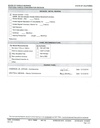
|
2019 aug 28
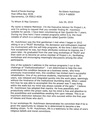
|
2019 aug 26
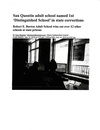
|
2019 aug 9
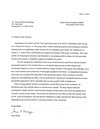
|
2019 jul 13
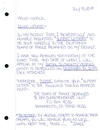
|
2019 jul 13
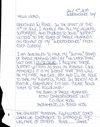
|
More... |
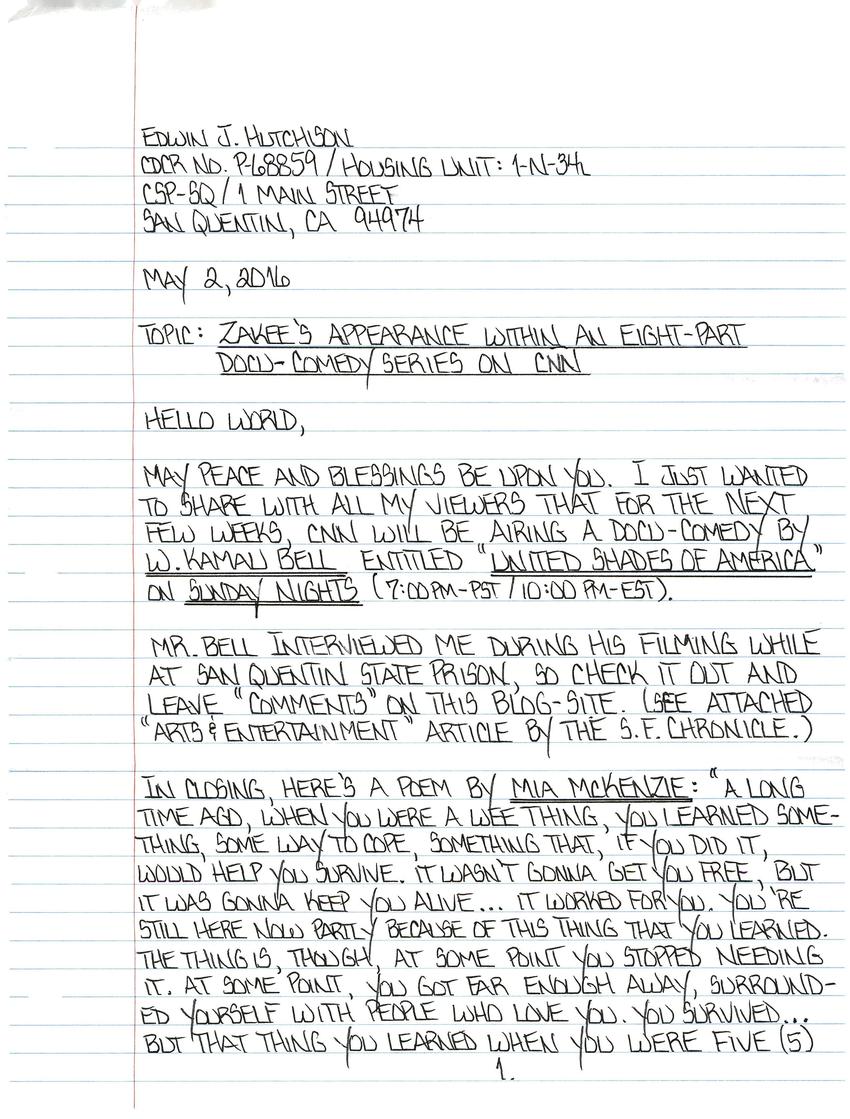
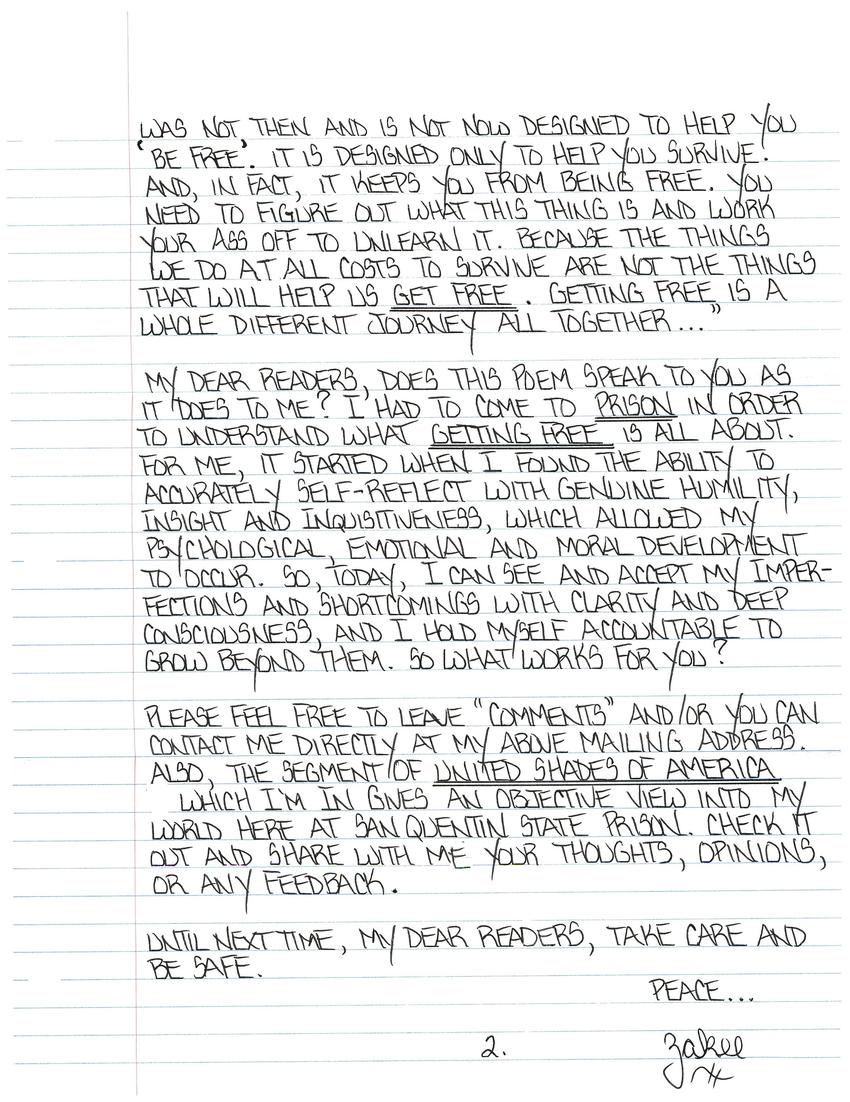
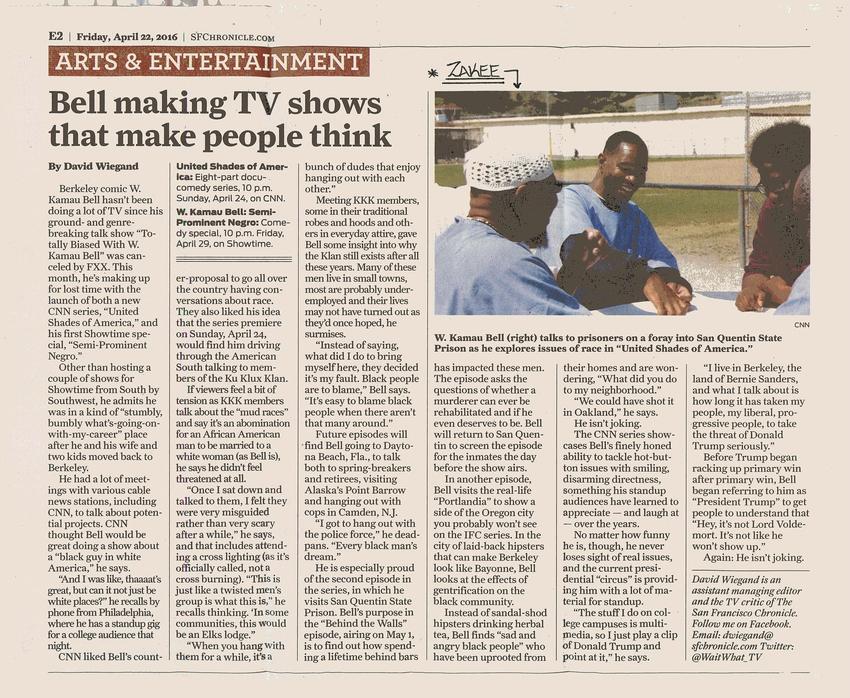
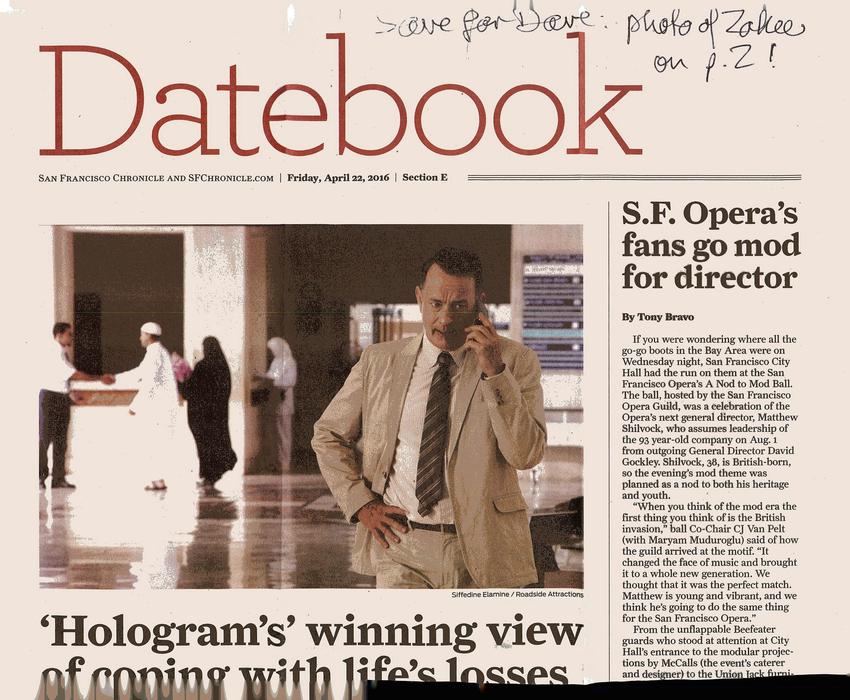

Replies